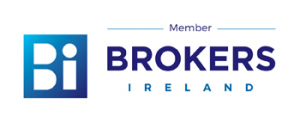Life Expectancy Increases
There is a lot of the confusing terminology around Protection products. The list below should help you make sense of some of it.
I’ve written about the importance of Income Protection in previous issues. The World Health Organisation (WHO) recently stated that globally, life expectancy has increased by 5 years between 2000 and 2015. You can expect to live well into your retirement years (past 65) but for up to 1 in 4 people it’s not all plain sailing and illness or injury can be an unforeseen life event. You should have a well thought out financial plan in place to see you through any unforeseen events in your working life and I firmly believe that Income Protection is an important part of that financial plan.
Making sense of your options
However, things can get complicated when you decide you need to put some cover in place.
Income Protection simply put is a policy that insures a portion of your income, so that in the event of a loss of earnings due to illness or injury, you can make a claim against this policy, to replace some of these lost earnings. Income Protection is also known as Permanent Health Insurance (PHI) or Disability cover, just to confuse matters!
I manage a large group Income Protection plan and also many individual polices and some of the most frequently asked questions I get are:
What is a “deferred period”?
This is the continuous amount of time you must be out of work before you can make a claim against your policy. The life companies typically offer the option of either, 13 weeks, 26 weeks or 1 year. The length of the deferred period will have an impact on the cost of you cover.
What is the difference between escalation and indexation?
In Income Protection terms, indexation allows you to increase your cover annually and escalation is the option to include increases to your income in payment if you had to make a claim.
What does “Non-Medical Limit” mean?
This is sometimes called the Free Cover Limit and applies to all types of protection policies. It is the level of cover a life company is prepared to offer, without requiring any medical information about you. For large group schemes the Non-Medical Limit can be quite high for all members, regardless of age or health – it is a little more restrictive for individual policies – and more dependent on your age. Once you put the cover in place, you can keep the same level of cover in place going to term without providing medical evidence in the future. If you do not have access to a group policy, getting cover in place at a younger age should be considered. And just a point for any smokers out there: the cost of this cover doubles for smokers – if lung cancer and strokes don’t frighten you, they certainly frighten the life companies who consider you a greater risk.
What is underwriting?
This is the term used by life companies to describe the process of assessing risk, ensuring that the cost of the cover is proportionate to the risks faced by the individual concerned. So, if you are in a group scheme or you are very young, you might not have to worry about this. But if you are older, or the level of your benefit is higher than the Non-Medical Limit, you may be underwritten. This may be a questionnaire about your health and lifestyle and may be followed by an interview with a nurse or a medical examination.
If you are in good health, the results of the above investigations may mean you are not considered a risk to the life company, and they will provide you with the level of cover you require at the normal price they offer it for. If they feel your health of lifestyle poses a miner risk, they may decide to provide you with the level of cover you require but at a higher cost than usual. They could, in the event of poor health even decline to provide you with cover at all. It is beneficial to speak to a financial adviser prior to getting cover, so that this process is kept to a minimum for you.
Here to help you navigate your way to financial security.
The Milestone Advisory team are qualified financial services consultants. We specialise in helping professionals in the construction sector and related industries. Our team will work with you to review your finances, explaining your options in clear English.
No jargon – just the facts.
For further information please contact Susan O’Mara via email or phone: (01) 406 8020. Milestone Advisory DAC t/a Milestone Advisory is regulated by the Central Bank of Ireland.





